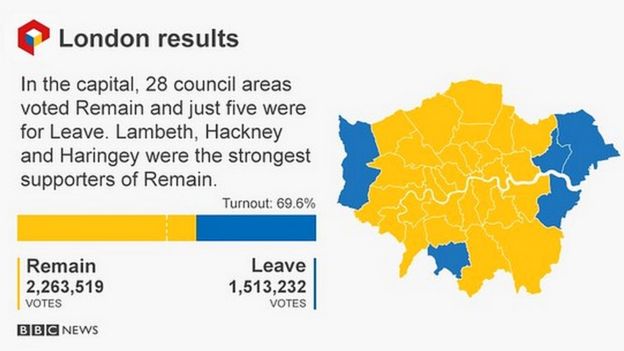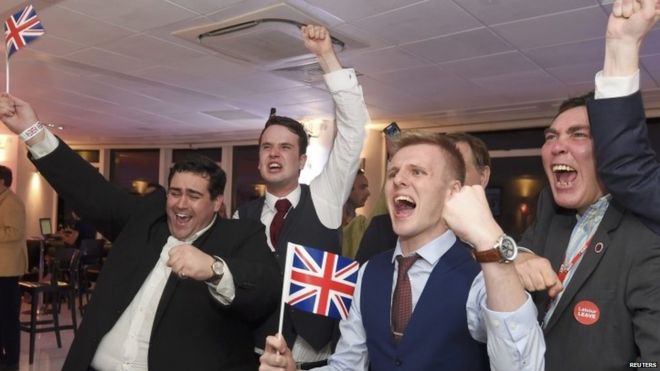Mel O'Drama
Admin
LV
12
- Messages
- 13,451
- Solutions
- 1
- Reaction score
- 27,329
- Awards
- 29
- Member Since
- 28th September 2008
Inevitable, of course, but no less tragic for it. "Bright future" my aunt Fanny.
Theresa May has signed the letter that will formally begin the UK's departure from the European Union.
Giving official notice under Article 50 of the Lisbon Treaty, it will be delivered to European Council president Donald Tusk later.
In a statement in the Commons, the prime minister will then tell MPs this marks "the moment for the country to come together".
It follows June's referendum which resulted in a vote to leave the EU.
Mrs May's letter will be delivered at 12:30 BST on Wednesday by the British ambassador to the EU, Sir Tim Barrow.
The prime minister, who will chair a cabinet meeting in the morning, will then make a statement to MPs confirming the countdown to the UK's departure from the EU is under way.
She will promise to "represent every person in the whole United Kingdom" during the negotiations - including EU nationals, whose status after Brexit has yet to be settled.
"It is my fierce determination to get the right deal for every single person in this country," she will say.
"For, as we face the opportunities ahead of us on this momentous journey, our shared values, interests and ambitions can - and must - bring us together."
Attempting to move on from the divisions of June's referendum, Mrs May will add: "We are one great union of people and nations with a proud history and a bright future.
"And, now that the decision has been made to leave the EU, it is time to come together."
Labour leader Jeremy Corbyn said his party respected the decision to leave the EU and would hold the government to account "every step of the way".
He said: "Britain is going to change as a result. The question is how."
Mr Corbyn warned it would be "a national failure of historic proportions" if Mrs May does not secure protection for workers' rights.
On Tuesday night, the prime minister spoke by telephone to Mr Tusk, EU Commission president Jean-Claude Juncker and German Chancellor Angela Merkel.
Article 50 gives both sides two years to reach agreement, so unless both sides agree to extend the deadline for talks, the UK will leave on 29 March 2019.
Negotiations are expected to begin in mid-May. The UK government says it wants to carry out both separation and trade talks at the same time, but EU chiefs say the two issues must be handled separately.
The UK has said it wants an "early agreement" to guarantee the rights of EU citizens living in the UK and those of British nationals living abroad.
Other issues which are likely to be discussed are things like cross-border security arrangements, the European Arrest Warrant, moving EU agencies which have their headquarters in the UK and the UK's contribution to pensions of EU civil servants - part of a wider "divorce bill" which some reports have suggested could run to £50bn.
The Lib Dems claimed Mrs May was "pulling the trigger that will set in motion a chain of events which will change this country forever, and doing so without a proper plan", but the Leave Means Leave campaign congratulated her on sticking to her timetable of invoking Article 50 before the end of March.
"Unpatriotic, pro-EU fanatics will continue to try to derail or, at the very least, delay Brexit," the group's co-chairman, Richard Tice, warned.
The PM was forced to consult Parliament before invoking Article 50 after it lost a legal challenge in the Supreme Court, but it secured the backing of most MPs earlier this month.
On Thursday the government is expected to publish details of its "Great Repeal Bill", which aims to convert EU law into domestic legislation and repeal the European Communities Act, which says EU law is supreme to the UK's.
http://www.bbc.co.uk/news/uk-politics-39422353
Theresa May has signed the letter that will formally begin the UK's departure from the European Union.
Giving official notice under Article 50 of the Lisbon Treaty, it will be delivered to European Council president Donald Tusk later.
In a statement in the Commons, the prime minister will then tell MPs this marks "the moment for the country to come together".
It follows June's referendum which resulted in a vote to leave the EU.
Mrs May's letter will be delivered at 12:30 BST on Wednesday by the British ambassador to the EU, Sir Tim Barrow.
The prime minister, who will chair a cabinet meeting in the morning, will then make a statement to MPs confirming the countdown to the UK's departure from the EU is under way.
She will promise to "represent every person in the whole United Kingdom" during the negotiations - including EU nationals, whose status after Brexit has yet to be settled.
"It is my fierce determination to get the right deal for every single person in this country," she will say.
"For, as we face the opportunities ahead of us on this momentous journey, our shared values, interests and ambitions can - and must - bring us together."
Attempting to move on from the divisions of June's referendum, Mrs May will add: "We are one great union of people and nations with a proud history and a bright future.
"And, now that the decision has been made to leave the EU, it is time to come together."
Labour leader Jeremy Corbyn said his party respected the decision to leave the EU and would hold the government to account "every step of the way".
He said: "Britain is going to change as a result. The question is how."
Mr Corbyn warned it would be "a national failure of historic proportions" if Mrs May does not secure protection for workers' rights.
On Tuesday night, the prime minister spoke by telephone to Mr Tusk, EU Commission president Jean-Claude Juncker and German Chancellor Angela Merkel.
Article 50 gives both sides two years to reach agreement, so unless both sides agree to extend the deadline for talks, the UK will leave on 29 March 2019.
Negotiations are expected to begin in mid-May. The UK government says it wants to carry out both separation and trade talks at the same time, but EU chiefs say the two issues must be handled separately.
The UK has said it wants an "early agreement" to guarantee the rights of EU citizens living in the UK and those of British nationals living abroad.
Other issues which are likely to be discussed are things like cross-border security arrangements, the European Arrest Warrant, moving EU agencies which have their headquarters in the UK and the UK's contribution to pensions of EU civil servants - part of a wider "divorce bill" which some reports have suggested could run to £50bn.
The Lib Dems claimed Mrs May was "pulling the trigger that will set in motion a chain of events which will change this country forever, and doing so without a proper plan", but the Leave Means Leave campaign congratulated her on sticking to her timetable of invoking Article 50 before the end of March.
"Unpatriotic, pro-EU fanatics will continue to try to derail or, at the very least, delay Brexit," the group's co-chairman, Richard Tice, warned.
The PM was forced to consult Parliament before invoking Article 50 after it lost a legal challenge in the Supreme Court, but it secured the backing of most MPs earlier this month.
On Thursday the government is expected to publish details of its "Great Repeal Bill", which aims to convert EU law into domestic legislation and repeal the European Communities Act, which says EU law is supreme to the UK's.
http://www.bbc.co.uk/news/uk-politics-39422353




